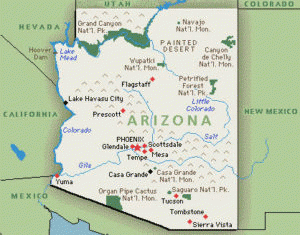From Consortium News
Arizona's resistance to allowing school books and courses that teach Mexican-American history and culture has generated resistance, both in underground efforts to provide the books to students and to challenge the ban on courses in courts as discriminatory.
The Librotraficante Caravan, co-organized in Houston Texas by writer, teacher and activist, Tony Diaz, headed back to Arizona this month with a new shipment of banned books. According to Diaz, Houston activists made the 1,000-plus-mile ride once again to draw attention to Arizona's decision to remove from classrooms books mostly dealing with Mexican-American culture.
The journey also included the restocking of the underground libraries they formed during their 2012 Caravan, and updates on the advancement of Ethnic Studies in each state they pass through. According to the group's press release, "With their 2012 Caravan, the Librotraficantes joined a nationwide movement to defy Arizona's ban and to keep it in check."
There is also a federal court case, which commenced on June 26, contesting the book ban and the ban on ethnic studies in Arizona, that the caravan was organized to call attention to. According to Diaz, the court case will be reviewed again with new evidence consisting of studies proving that the outlawed Mexican American Studies courses in Tucson increased student success and learning power at many levels. The case had been reviewed by the 9th Circuit Court of Appeals in San Francisco, which sent the case back to the Arizona Supreme Court to be considered with the additional evidence.
"We were in the courtroom when a Federal Judge told America that if you have proof that a course helps a particular group of students succeed, yet you outlaw the course, that looks like discrimination," said Tony Diaz. "We hope that the upcoming Arizona Supreme Court ruling will drive a stake in the heart of this un-American law that tramples on Intellectual freedom."
The six-city caravan departed from the Casa Ramirez Folk Art Gallery in Houston on June 21, and made stops in San Antonio, El Paso, Las Cruces and Albuquerque before culminating in Tucson, Arizona.
Dennis Bernstein: Why don't you remind people all about what this caravan and what it was meant to do.
Tony Diaz: Thanks for all the work that you do for freedom of speech. And, really, that's what the first caravan was about. When our crew here in Houston, Texas heard about students lamenting that books had been yanked out of their hands from Tucson classrooms, it perked our ears. We looked into it.
That's when we found out that Arizona had passed this draconian law that prohibits courses that promote the overthrow of the government. Which is basically what they have accused books of poetry, literature, you know, Pedagogy of the Oppressed, Critical Race Theory, House on Mango Street. You know what that is -- that's straight up fascism and oppression. So, we said, "If you're going to ban the books, we're going to smuggle them back."
And the students wanted the books back. So we started an 1,100 [mile], six city caravan, and we started underground libraries, basically tracing the Chicano literary history of the Southwest and making stops in each of the cities along the way. If people go to librotraficante.com they can see the original map, and it really does trace the legacy of literature in the Southwest. This time around was really powerful, Dennis, and I really want to share this with your readers, is that we revisited all the underground libraries, and we stocked them with banned books. And each of them is thriving. [...] So it was really powerful, to not only convene with our communities again, but also ... get all the way to Tucson for the Arizona Supreme Court hearing.
And it's beautiful to see our community defy that ban. I'm hoping the rest of the country catches up. But people should know that right now [week of June 26], at the Arizona Supreme Court, the ban of Mexican American Studies is being tested. We hope it will get overturned. If not, people need to know, if that is not overturned, that will be the law that suppresses African American Studies, Mexican American Studies, Asian American Studies, LGBTQ Studies, Women's Studies, in every corner of the land. So it's important that we keep an eye on this. And that we all work really hard to keep spreading all this knowledge, right now.
DB: Say a little bit more about how the banned writers have participated, what their reactions have been. It is really incomprehensible, shall we say, in 2017 that the folks in Tucson, and other places, are afraid of extraordinary, beautiful books that have been the mainstay in many libraries all over the country.
TD: No, it's shocking, it's depressing. At the same time, we gotta remind folks that it's our communities that edify us, inspire us. Because, yeah, it is troubling to know that there are forces at work that want to stifle these beautiful books, such as Bless Me, Ultima by Rudolfo Anaya. But we are in a Chicano Renaissance when someone who is from a Mexican American background can read those works and wind up convening with Mr. Anaya, himself.
It was wonderful because the caravan passed through Albuquerque, and we stopped at Rodolfo's house. We took some tequila shots with him just one more time to be edified spiritually and physically, but on top of it he said "Occupy Arizona." He donated books, he donated some funds to the cause. He gave us shelter and fired us up.
(Note: You can view every article as one long page if you sign up as an Advocate Member, or higher).






